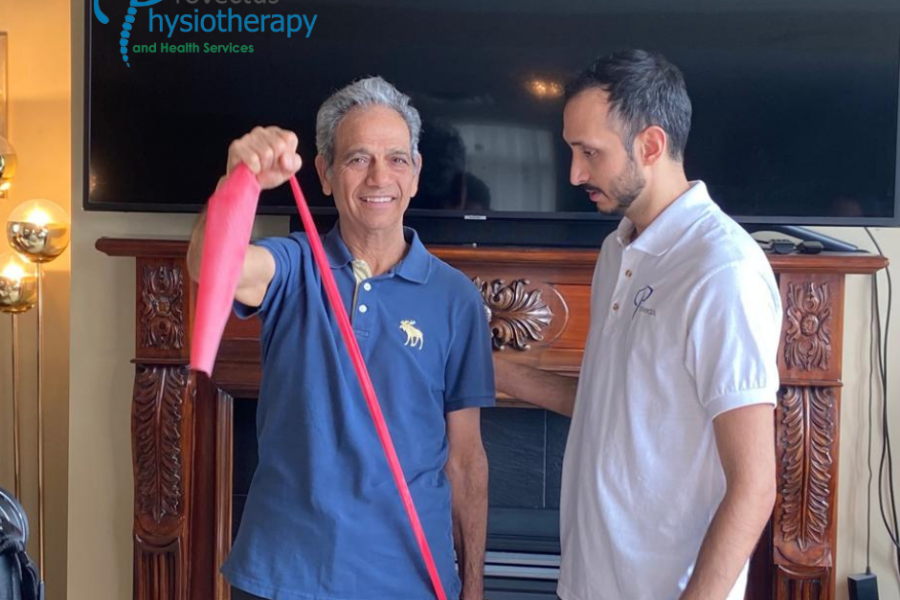The senior years should be characterized by cherished moments and well-deserved relaxation. However, preserving strength and mobility is a critical factor in achieving an enhanced quality of life during our senior years. In this article, we shall delve into the pivotal roles played by dietitians and specialized healthcare providers, such as Provectus Physiotherapy, in optimizing diets and delivering physical therapy to enhance the physical well-being of older individuals.
- Fueling Muscles with Nutrient-Rich Dairy Proteins
Consider the scenario in which elderly individuals benefit from the inclusion of 210 grams of ricotta cheese in their daily dietary intake. A study conducted by Alemán-Mateo et al. explored how this dietary modification significantly improved muscle mass, balance, and mitigated the loss of muscle strength in seniors. Dietitians play an integral role in devising these dietary strategies, ensuring seniors receive the necessary nutrients to bolster their musculature (1).
- Empowering Frail Seniors with Nutritional Supplementation
In a manner akin to the protein shakes frequently consumed, researchers, spearheaded by Payette, undertook the development of a specifically formulated nutritional supplement designed for older individuals experiencing frailty. The outcomes were nothing short of extraordinary. Seniors who incorporated this specialized supplement into their dietary regimen, alongside efforts to augment their overall food intake, experienced substantial weight gain, elevated energy levels, and improved emotional well-being. Dietitians serve as the architects of these personalized nutritional plans, customizing them to cater to the distinctive needs of each individual (2).
- Empowering Stroke Survivors with Leucine-Enriched Supplements
The process of recuperation following a stroke can be arduous, particularly with regard to the restoration of mobility. In this context, Yoshimura and the research team introduced an innovative approach. By incorporating a specialized nutritional supplement enriched with leucine, complemented by straightforward yet effective exercises, they observed significant enhancements in muscle mass, muscle strength, and physical function among stroke survivors. In this endeavor, dietitians work closely with healthcare providers to ensure that post-stroke patients receive the requisite nutrition to regain their strength (3).
- Optimizing Strength with Protein
The fundamental role of dietary protein in enhancing physical strength cannot be overstated. Isanejad and the research team explored the prospect of elevating strength in older individuals through an increased protein intake. The findings were unequivocal – a higher protein intake was closely associated with improved hand-grip strength, knee extension, balance, mobility, and overall physical performance. Dietitians are the architects of these dietary strategies, ensuring that seniors receive the essential protein required to fortify their physical strength (4).
These studies collectively underscore the fundamental role dietitians play in promoting physical strength and function in the elderly through tailored dietary interventions. However, the comprehensive approach extends beyond nutrition. Specialized healthcare providers, such as Provectus Physiotherapy, complement the efforts of dietitians by offering essential physical therapy and rehabilitation services. This holistic approach ensures that our seniors lead fulfilling lives, encompassing both optimized nutrition and fortified physical strength.
In the pursuit of enhancing the strength and vitality of our aging population, it is imperative to recognize the indispensable roles played by dietitians and specialized healthcare providers such as Provectus Physiotherapy. These experts work collaboratively to ensure seniors receive not only the right nutrition but also the precise physical therapy required to remain active and strong. Through the concerted efforts of these professionals, aging is transformed into an adventure rather than a struggle.
References:
- Heliodoro Alemán-Mateo, Virginia Ramírez Carreón, Liliana Macías, Humberto Astiazaran-García, Ana Cristina Gallegos-Aguilar & José Rogelio Ramos Enríquez (2014) Nutrient-rich dairy proteins improve appendicular skeletal muscle mass and physical performance, and attenuate the loss of muscle strength in older men and women subjects: a single-blind randomized clinical trial, Clinical Interventions in Aging, 9:, 1517-1525, DOI: 10.2147/CIA.S67449
- Hélène Payette, Veronique Boutier, Carole Coulombe, Katherine Gray-Donald, Benefits of Nutritional Supplementation in Free-living, Frail, Undernourished Elderly People: A Prospective Randomized Community Trial, Journal of the American Dietetic Association, Volume 102, Issue 8, 2002, Pages 1088-1095, ISSN 0002-8223, https://doi.org/10.1016/S0002-8223(02)90245-2.
- Yoshihiro Yoshimura, Takahiro Bise, Sayuri Shimazu, Maiko Tanoue, Yuko Tomioka, Mai Araki, Takafumi Nishino, Aomi Kuzuhara, Fumihiko Takatsuki, Effects of a leucine-enriched amino acid supplement on muscle mass, muscle strength, and physical function in post-stroke patients with sarcopenia: A randomized controlled trial, Nutrition, Volume 58, 2019, Pages 1-6, ISSN 0899-9007, https://doi.org/10.1016/j.nut.2018.05.028.
- Isanejad, M., Mursu, J., Sirola, J., Kröger, H., Rikkonen, T., Tuppurainen, M., & Erkkilä, A. (2016). Dietary protein intake is associated with better physical function and muscle strength among elderly women. British Journal of Nutrition, 115(7), 1281-1291. doi:10.1017/S000711451600012X











